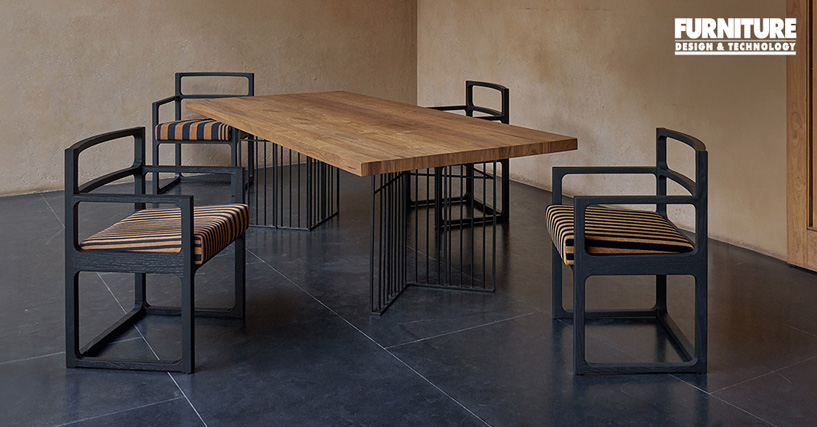
Furniture brand Phantom Hands recently unveiled a striking new collection that revives the legacy of the renowned Sri Lankan architect Geoffrey Bawa. Developed in close collaboration with the Geoffrey Bawa Trust, this launch breathes new life into furniture designs originally conceived between the mid-1960s and mid-1990s. Many of the pieces were created for iconic buildings designed by Bawa and his team, and are now being reproduced with contemporary refinements to enhance their durability, functionality and adaptability for modern use. Know more about it on FURNITURE DESIGN AND TECHNOLOGY (FDT).

Bawa, often celebrated as the pioneer of tropical modernism, had a profound influence on South Asian architecture. His designs merged traditional local craftsmanship with modernist principles, always responding to the climate, landscape and cultural context of Sri Lanka. His architectural style emphasized spatial harmony, natural materials and a balance between indoors and outdoors, qualities that also shaped his approach to furniture design. The newly released collection captures this spirit, showcasing a harmonious blend of regional influences and timeless modern aesthetics.

The pieces include chairs, sofas, stools, benches, tables and lighting fixtures, many of which were designed under pressing limitations such as budget limitations, time constraints, trade restrictions and import embargoes during periods of political instability in Sri Lanka. Despite such challenges, Bawa and his collaborators were able to create distinctive, high-quality pieces that reflect ingenuity, craftsmanship, and a distinct cultural identity.

Among the standout designs is a sofa that Bawa created for his personal residence in Colombo. It features a minimalist wooden frame and is topped with cushions upholstered in handloomed fabric from Barefoot, a Sri Lankan textile brand founded by Bawa’s friend and renowned artist Barbara Sansoni. Another highlight is a lounge chair originally crafted for the Bentota Beach Hotel. This design was inspired by colonial-era verandah chairs but reimagined without arms for a sleeker silhouette. The modern versions are offered in cane or cotton upholstery with various styles of turned braces.

The dining chair from the same hotel also returns in this collection with curved wooden armrests and a seat cushion clad in Barefoot’s signature Jack & Ebony fabric. Pieces like the Kandalama cafe and lounge chairs, known for their expressive, rolled backrests, draw influence from Australian architect Russell Hall’s designs. These re-editions substitute original wrought iron frames with lighter, corrosion-resistant materials such as stainless steel, teak and aluminium to improve portability and longevity.
Some designs in the collection were originally conceived by Bawa’s associates. For example, a sturdy and multi-functional bench designed by architect Channa Daswatte for the Kandalama Hotel is now being offered as a flat-pack product for easier shipping. Several seating options crafted by Bawa using wooden frames and leather are also being reissued, and now constructed using American red oak and Indian buffalo leather sourced from the Delhi-based maker J & R Guram.
The collection also includes tables with metal frames and marble tile tops, which have been updated using offcuts provided by TAB India, a natural stone manufacturer near Bengaluru, showcasing sustainable practices. One particularly personal and whimsical design is a dog bench that Bawa designed for his pets, which is reimagined using a lightweight stone aggregate with a soft, upholstered cushion.

Phantom Hands is also reissuing select lighting designs from Bawa’s studio. These include a pair of intricately shaped table lamps, which are now recreated using precise laser-cut and folded aluminium sheets, staying true to the original aesthetics while incorporating modern production techniques.
Image credit: Martien Mulder
Furniture Design India and the magazine FURNITURE DESIGN & TECHNOLOGY (FDT magazine) are from the trusted 22-year-old media house of SURFACES REPORTER and PLY REPORTER.
FDT is a B2B monthly bilingual magazine from India that shares the pulse of the furniture business in India and connects the manufacturers, OEMS, product designers, architects, showrooms, designers and dealers.
Read More© 2026 Furniture Design and Technologies.. All Rights Reserved. Developed by eyeQ Advertising